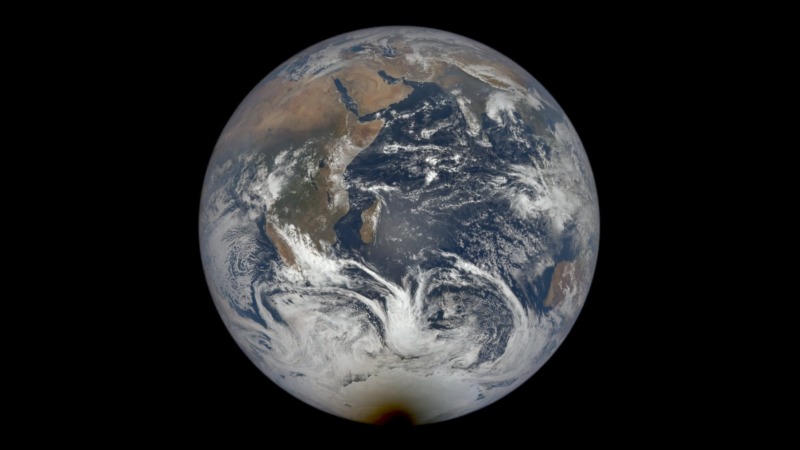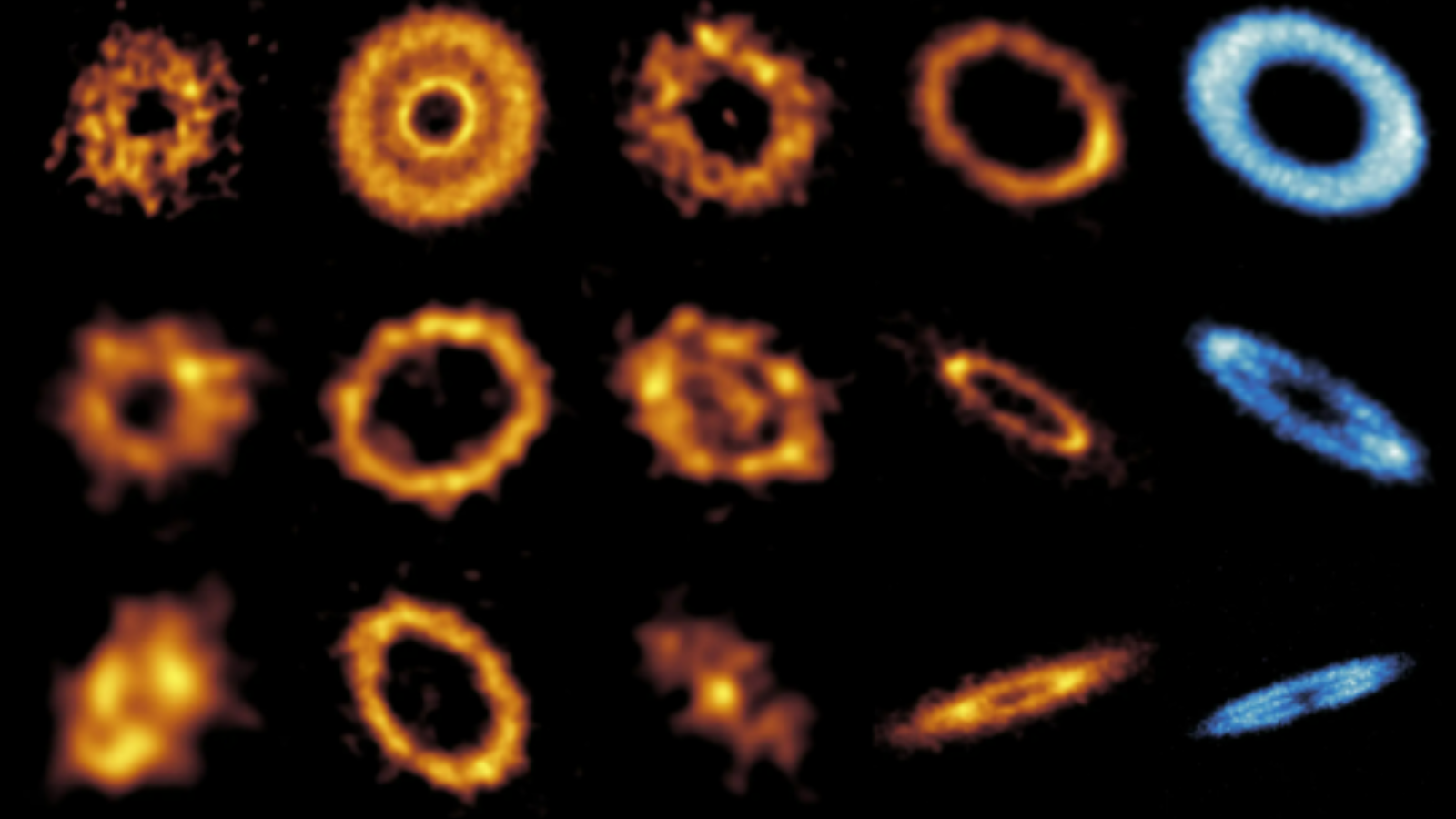See the total solar eclipse of 2021 from nearly 1 million miles away in this stunning photo
A NOAA satellite spotted the Dec. 4 event, but just barely.
The only total solar eclipse of 2021 was one few could see and this new photo from a spacecraft nearly 1 million miles from Earth shows why.
The photo, taken by NOAA's Deep Space Climate Observatory (DSCOVR), tracked the solar eclipse as the moon's shadow passed over a remote stretch of Antarctica and the south pole on Dec. 4. Taken from a distance of more than 950,000 miles (1.5 million km), the moon's shadow appears as a dark blemish at the very bottom of our world in the image.
"It would have been a long way for most of us to travel to go see the total solar eclipse in Antarctica this past weekend, but we'd have to travel even further to get this view," the Planetary Society space advocacy group observed on Twitter of the image.
DSCOVR's Earth Polychromatic Imaging Camera, or EPIC, built by NASA captured the view. "The EPIC instrument on the DSCOVR spacecraft captured the eclipse's umbra, the dark, inner shadow of planet Earth," NASA officials wrote in a description. "Shaped like a cone extending into space, it has a circular cross section most easily seen during an eclipse."
Related: The only total solar eclipse of 2021 in pictures: Amazing photos from Antarctica
DSCOVR also got a full-disc view of Earth that even astronauts were not able to access. That said, the Expedition 66 crew on the International Space Station did spot an oblong shadow from 250 miles (400 km) in altitude.
The usual mission of DSCOVR is also focused on the sun, but at a completely different angle. DSCOVR monitors the solar wind, or the constant stream of particles that flow from our sun across the solar system. Charged particles carried on the solar wind can influence everything from auroral activity to impacts on satellites, power lines and astronaut health.
Breaking space news, the latest updates on rocket launches, skywatching events and more!
It would have been a long way for most of us to travel to go see the total solar eclipse in Antarctica this past weekend, but we'd have to travel even further to get this view. 🚀 pic.twitter.com/1OLrpsn2nUDecember 7, 2021
Antarctica was a less accessible spot than usual, but several future solar eclipses will be in far more available regions (including one in 2024 that crosses the United States.)
You can prepare for future solar eclipses with our guide on how to photograph a solar eclipse safely. Our best cameras for astrophotography and the best lenses for astrophotography guides will help you pick the best gear to prepare for the next solar eclipse, too.
Editor's Note: If you snap an amazing solar eclipse photo and would like to share it with Space.com's readers, send your photo(s), comments, and your name and location to spacephotos@space.com.
Follow Elizabeth Howell on Twitter @howellspace. Follow us on Twitter @Spacedotcom and on Facebook.

Elizabeth Howell (she/her), Ph.D., was a staff writer in the spaceflight channel between 2022 and 2024 specializing in Canadian space news. She was contributing writer for Space.com for 10 years from 2012 to 2024. Elizabeth's reporting includes multiple exclusives with the White House, leading world coverage about a lost-and-found space tomato on the International Space Station, witnessing five human spaceflight launches on two continents, flying parabolic, working inside a spacesuit, and participating in a simulated Mars mission. Her latest book, "Why Am I Taller?" (ECW Press, 2022) is co-written with astronaut Dave Williams.

